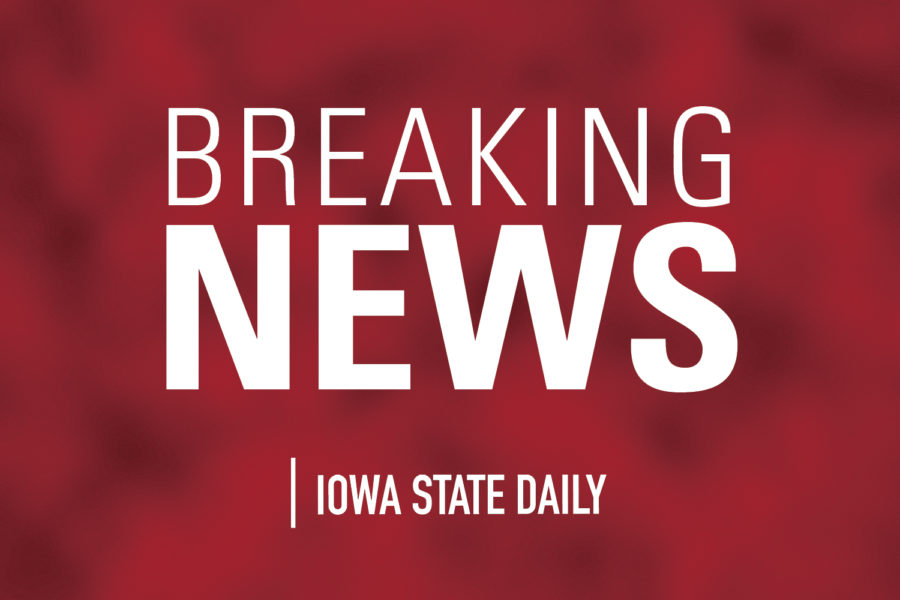Number of reported COVID-19 cases in Iowa grows by 78 as death toll increases by three
The Office of the President releases new information regarding masks, vaccinations and how the fall 2021 semester will look.
April 6, 2020
Gov. Kim Reynolds announced the number of Iowans who tested positive for COVID-19 rose by 78 to a total of 946 in a press conference April 6, while the disease’s Iowa death toll rose by three to 25.
Confirmed cases have been identified in more than three-quarter’s of Iowa’s counties, the governor said.
The three reported deaths include one older adult (61-80 years) from Linn County and two 2 elderly adults (81+) from Tama County.
According to IDPH, the locations and age ranges of the 78 new positive cases include:
- Allamakee County, 1 adult (18-40 years)
- Benton County, 1 middle-age adult (41-60 years)
- Cedar County, 1 middle-age adult (41-60 years)
- Cerro Gordo County, 2 older adults (61-80 years)
- Chickasaw County, 1 adult (18-40 years)
- Clinton County, 1 older adult (61-80 years)
- Crawford County, 1 middle-age adult (41-60 years)
- Dubuque County, 1 middle-age adult (41-60 years)
- Franklin County, 1 middle-age adult (41-60 years)
- Henry County, 1 adult (18-40 years)
- Jackson County, 1 middle-age adult (41-60 years)
- Johnson County, 5 adults (18-40 years), 6 middle-age adults (41-60 years), 1 older adult (61-80 years)
- Linn County, 5 adults (18-40 years), 6 middle-age adults (41-60 years), 2 older adults (61-80 years), 1 elderly adult (81+)
- Louisa County, 1 middle-age adult (41-60 years)
- Marion County, 1 older adult (61-80 years)
- Marshall County, 1 adult (18-40 years), 1 older adult (61-80 years)
- Muscatine County, 5 adults (18-40 years), 2 middle-age adults (41-60 years), 1 older adult (61-80 years)
- Page County, 1 middle-age adult (41-60 years)
- Polk County, 1 middle-age adult (41-60 years), 2 older adults (61-80 years)
- Pottawattamie County, 1 adult (18-40 years)
- Scott County, 2 adults (18-40 years), 7 middle age adults (41-60 years), 1 older adult (61-80), 1 elderly adult (81+)
- Tama County, 1 adult (18-40 years), 1 middle age adult (41-60 years), 1 older adult (61-80), 3 elderly adults (81+)
- Wapello County, 1 adult (18-40 years)
- Warren County, 1 adult (18-40 years)
- Washington County, 1 adult (18-40 years), 1 middle age adult (41-60 years), 1 older adult (61-80)
- Winnebago County, 1 middle age adult (41-60 years)
The governor also ordered the closure of additional businesses and venues through the end of April, including malls, “social and fraternal clubs,” bingo halls, bowling allies, zoos, skating rinks, children’s playgrounds, tobacco and vaping shops and campgrounds, among others.
Stephen K. Bayens, the commissioner of the Iowa Department of Public Safety, said police would enforce the ban on gatherings of more than 10 people. He said law enforcement officials do not want to arrest anyone but will enforce the measures if necessary. Defying the ban is a misdemeanor offense.
Reynolds did not announce a so-called “shelter in place” order as most other states have done. The governor has come under sustained criticism from a variety of sources over her refusal to issue such an order, including an editorial from the Washington Post. The Iowa Medical Board, which is appointed by the governor, unanimously recommended she adopt that measure in a vote on April 3. Three of Iowa’s four U.S. representatives, Abby Finkenauer, Dave Loebsack and Cindy Axne have also called on Reynolds to implement additional measures keep Iowans at home.
The Des Moines Register reported internal documents show the Iowa Department of Public Health (IDPH) and the governor are planning further mitigation strategies using the following metrics to determine whether to implement measures such as a shelter in place order for regions in the state:
- Percentage of population greater than 65 years of age
- Percent of identified cases requiring hospitalization
- Infection rate per 100,000 population in the past 14 days
- Number of outbreaks in long term care facilities
Sarah Reisetter, the IDPH’s deputy director, said none of the regions have met the metric to issue a “shelter in place” order, but added “we’re asking everybody to stay home.”
A 24-hour public hotline for Iowans has been established for questions regarding COVID-19. It can be accessed by calling 2-1-1 or 1-800-244-7431.







